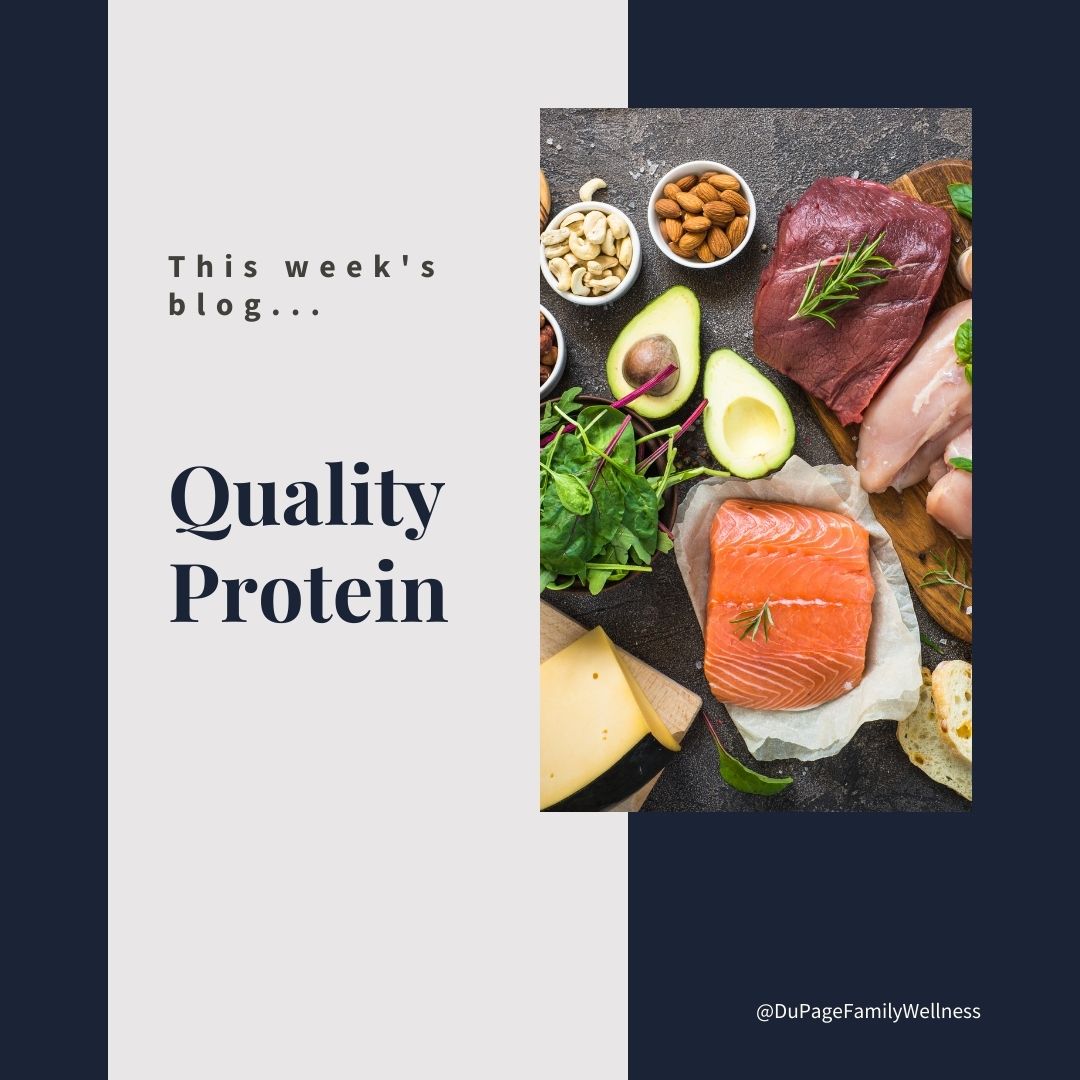 Did you know that every cell in your body contains protein? And that protein contains amino acids that are used to repair all the tissues in your body?
Did you know that every cell in your body contains protein? And that protein contains amino acids that are used to repair all the tissues in your body?
It’s true, your body needs protein to replenish itself. According to livestrong.com, protein helps “build muscles, produce new cells, regulate hormones and enzymes, heal wounds and promote immune function”.
It is considered the most important macronutrient in building muscle, which can elevate your metabolic rate. And since protein also helps you feel full longer, it is great for those wanting to lose weight.
Since the body does not store protein, it depends on your diet to provide adequate amounts. Let’s look at the healthiest ways to get this protein.
Animal Protein
Meat can be a wonderful source of protein, but it is important to make sure you are getting quality meat! How the animal was raised, and what the animal did while it was alive, is extremely important. It is not just in the animals' best interest to be grass-fed or free-range, it has a direct impact on your health as well.
A study done by Mother Earth News compared eggs from free-range chickens with those produced commercially. It found that free range eggs had:
- 2/3x more Vitamin A
- 2x more Omega-3
- 3x more Vitamin E
- 7x more Beta Carotene
In addition, grass fed beef also has been found to contain higher levels of vitamins, antioxidants, and anti-inflammatory Omega 3 fatty acids when compared to conventional beef.
What about Plant Proteins?
While plants contain many necessary nutrients, they are not considered a complete protein because they lack one or more of the essential amino acids. It is possible to get the nutrients you need without eating meat, but it takes care to make sure you are getting everything you need. Plants contain compounds like oxalates and phytates which hamper your body's ability to absorb key minerals like zinc, magnesium, calcium, copper, and iron. Additionally, the vitamins in plants are often times found in less active and less bioavailable forms.
For anyone who is thinking that plant proteins are superior or equal to those from animals, consider the following example. In order to get the same amount of protein in 4 oz. of steak (181 calories) from rice and beans, you would have to eat 12 ounces of kidney beans plus a cup of rice! That would give you 638 calories, and for the carb counters out there, this would be 122 grams of carbs!
For those of you that are trying to eat a vegetarian or vegan diet, the following are some of the protein sources. Like I mentioned above, this can be done, but it does take special consideration to be sure that you are getting all of your nutrients.
- Whole, organic, non-GMO soy products such as tofu. (Please do NOT rely on products containing soy protein isolates or concentrates which are often found in soy burgers, meatless chicken, as well as protein bars.)
- Nuts & seeds
- Beans & lentils (if your body tolerates them well.)
- Quinoa, rice, and other grains
- Some plant-based protein shakes may be useful if you are struggling to get enough protein in your diet, but check the ingredient list carefully!
This Vegetarian and Vegan Guide was created by Mark Hyman, M.D. It is a great resource for vegan and vegetarians trying to eat healthy.
How to Buy Quality Protein
Companies spend a lot of money each year marketing their products. The terms used can be confusing for consumers. The following chart can help you decipher these terms, so you know what to look for when you shop.

*For more about these terms check out our Protein Guide.
Amount of Protein
Ideally people would consume one serving of protein with each meal (one serving of protein is roughly the size of the palm of your hand or a deck of cards). However, each person’s body and activity level are different, so protein needs will vary. If you are reading labels, I like to aim for at least 25-30 grams/meal.
Listen to your body! It is the best indicator of how much protein is right for you. If you don’t eat much protein, consider adding some to see how it makes you feel. If you do eat a lot of protein, does it set well with you?
The Importance of Nose to Tail Eating
As you all know by now, I like to relate everything to how our ancestors used to live. Instead of just eating chicken thighs, steak and ground meats, which are all muscle meat, our ancestors used THE WHOLE ANIMAL! There are incredible nutrient and health benefits in utilizing this practice.
Organ meat like liver is one of the most nutrient dense foods that there is! In fact, my sister gives liver credit for helping her body to heal when she was struggling with infertility. (Here is her story) We try to buy our animals by the quarter/half animal and eat organ meat too. One of my kids' favorite meals is "Beef Heart Stew"
Bone broth made from the bones of animals is great for soups, stews, or just drinking. Broth and the gelatin that is freed during the cooking process is so good for our hair, skin and nails. It has a different amino acid profile than muscle meats, and can help to balance our protein intake in an incredibly beneficial way. I love the following article on how to use gelatin and why it's so good for you!
Polycystic Ovary Syndrome (PCOS), Insulin Resistance, and Protein
About 85% of women with Polycystic Ovary Syndrome (PCOS) have issues with insulin resistance (As well as a huge percentage of our whole population). If you are one of these women, it is crucial to address your symptoms and get to the root cause.
If insulin resistance is one of your root causes, eating enough protein (and fat) throughout the day will allow your blood sugar to remain steady and keep you from the blood sugar spikes you would otherwise get.
Protein is good for us all, but if you have PCOS or insulin resistance, it can really be a game changer!
If you need more guidance on giving your body the nutrition it needs, feel free to reach out to me. We can discuss whether a program like “Seven Weeks of Real Foods” or “BALANCED” would be right for you. (To learn more about BALANCED you can watch by FREE webinar.)
Dr. Jamie
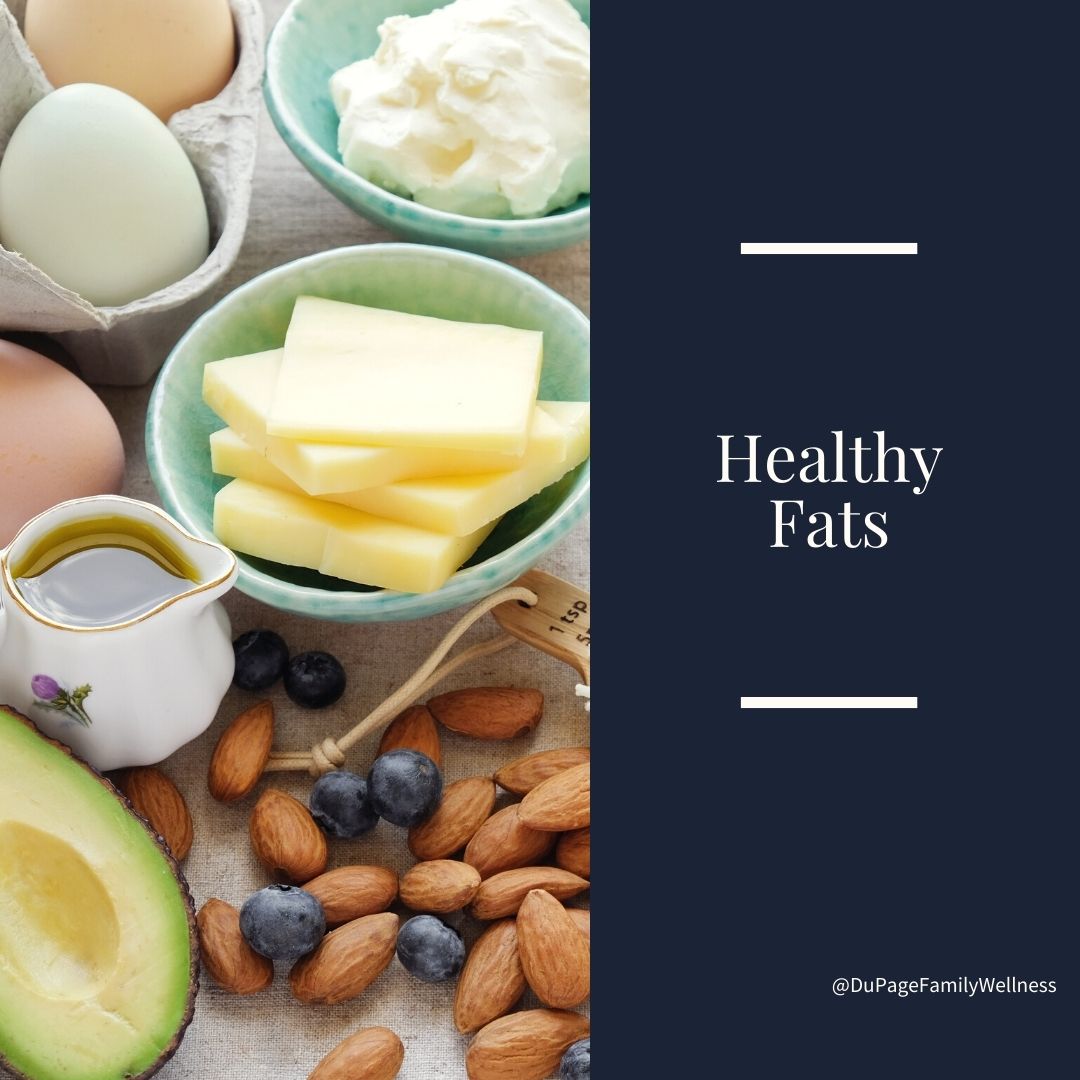 Are you afraid to incorporate fats into your diet? Do you believe that eating fat will make you fat? If so, it's not your fault. You’ve likely been taught for years by the media that eating fat is going to make you fat, BUT this is simply not true!
Are you afraid to incorporate fats into your diet? Do you believe that eating fat will make you fat? If so, it's not your fault. You’ve likely been taught for years by the media that eating fat is going to make you fat, BUT this is simply not true!
The topic of fat can get very confusing, very quickly. But eating the right fats will make a HUGE impact on decreasing inflammation within your body. While eating fats is incredibly important, eating the RIGHT fats is the key!
We need HEALTHY fat
EVERY cell in our body contains fat. Healthy fats help us feel full, stabilize blood sugar, and maintain energy.
There are several essential fatty acids that our bodies cannot make, and if we don’t consume them it may show up as inflammation, fatigue, poor memory function, heart issues, depression, dry skin, as well as other unpleasant symptoms.
Our bodies also NEED fat to produce HORMONES. This is especially important for my fertility, pregnant, and postpartum patients!
In addition, eating healthy fat (like olive oil) with your salad or veggies will actually allow your body to absorb more of the nutrients from the vegetables.
Read more ...
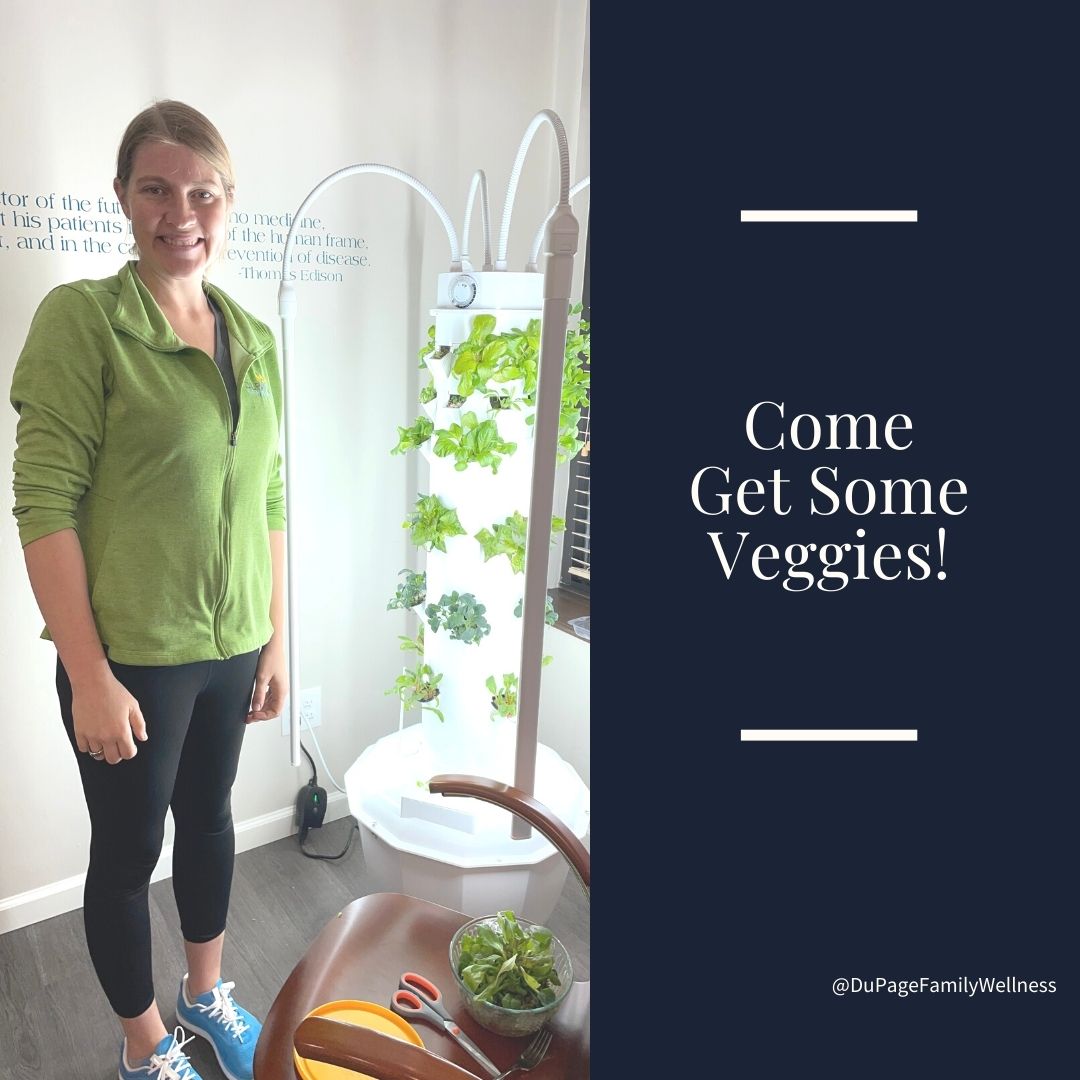 You know that eating veggies is important for your overall health! But sometimes it’s a hassle to run to the grocery store, clean the produce, and prepare a salad.
You know that eating veggies is important for your overall health! But sometimes it’s a hassle to run to the grocery store, clean the produce, and prepare a salad.
The tower garden has been the solution for me, and I want to share the great produce grown in my office with you!
Healthy Habits Made Easy
When you establish good habits, such as eating wholesome foods, it will have a direct impact on your health. The Tower Garden is encouraging me to continue my journey to good health by letting me grow fresh, nutrient-rich food without soil right in my office.
With fresh veggies growing year-round in my office, it only makes sense that I would enjoy them each day at work. When it is time to eat, I just snip a variety of lettuce and some herbs.
With a little protein and some homemade dressing, I have a complete meal!
Other Benefits of the Tower Garden
In addition to the easy nutritious vegetables it provides, the Tower Garden has many other benefits.
Read more ...
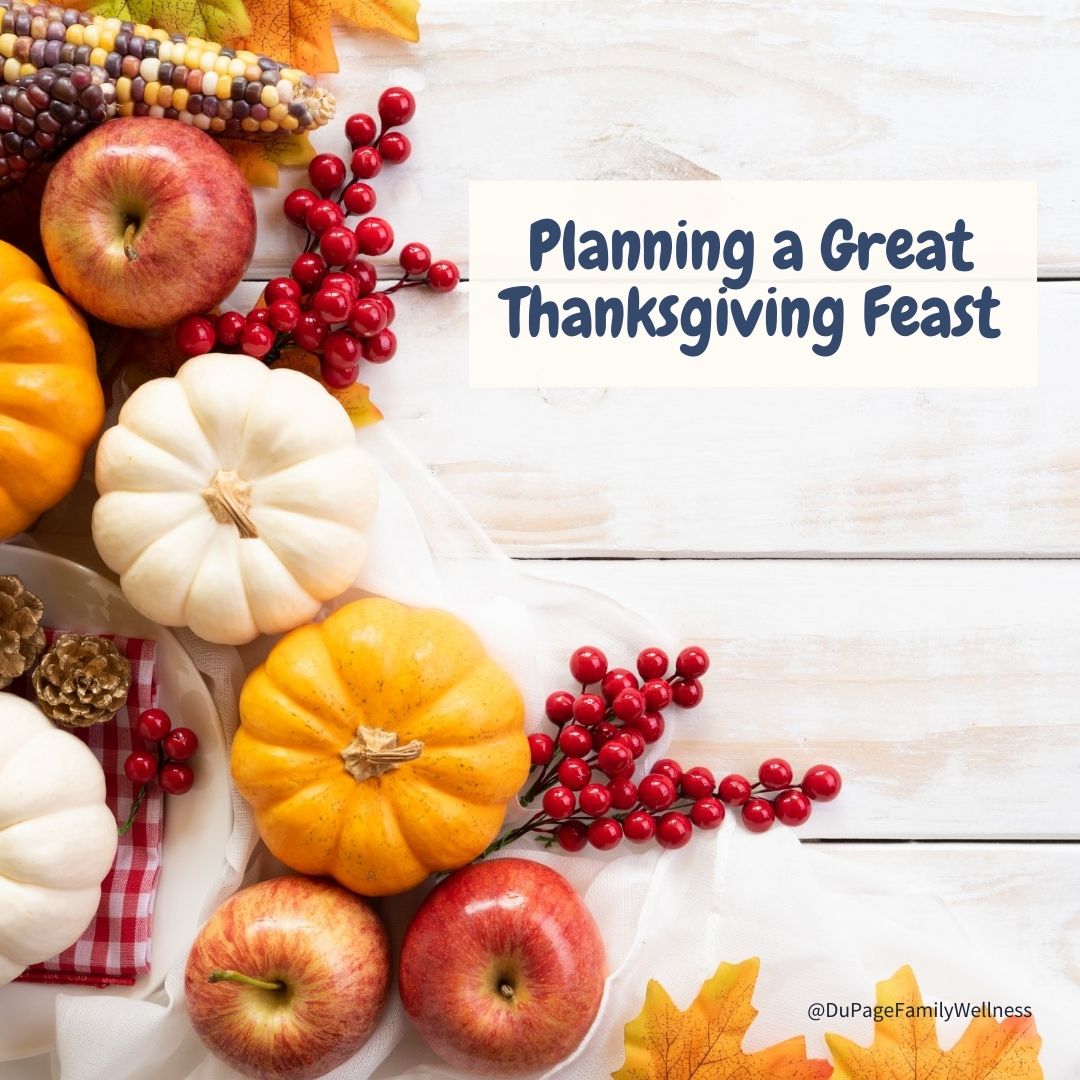 Many people wonder if it's possible to create a Thanksgiving menu with all real, unprocessed, nourishing foods. To that I respond with a resounding yes! It is absolutely possible to make a great meal using healthy whole foods.
Many people wonder if it's possible to create a Thanksgiving menu with all real, unprocessed, nourishing foods. To that I respond with a resounding yes! It is absolutely possible to make a great meal using healthy whole foods.
If you are unsure how to create your menu, here are several variations of the typical Thanksgiving fare that include only real food, unprocessed ingredients!
If you aren't quite ready to switch all your recipes over that's okay, start with one or two. I think once you see how tasty these recipes are, you will be inspired to try some more in following years.
You may be surprised that when you use these recipes you actually feel good after feasting, instead of the standard post thanksgiving lethargy. Enjoy!
The Bird:
Easy Roasted Turkey with Sage Butter
Butterflied Turkey Recipe (with tutorial)
Stuffing:
Sausage, Apple and Cranberry Stuffing
Paleo Comfort Foods - Stuffing
Green Bean Casserole:
Paleo Green Bean Casserole
Sweet Potato Casserole:
Sweet Potato Casserole
Roasted Garlic and Butternut Squash Mash
Cranberries:
3 Ingredient Cranberry Sauce
Other Sides:
Roasted Brussel Sprouts with Bacon
Beautiful Brussels Sprouts (with onion and squash)
Butternut Squash Risotto
Cauliflower "Mashed Potatoes"
Desserts:
Pumpkin Bars
Pumpkin Pie
Read more ...
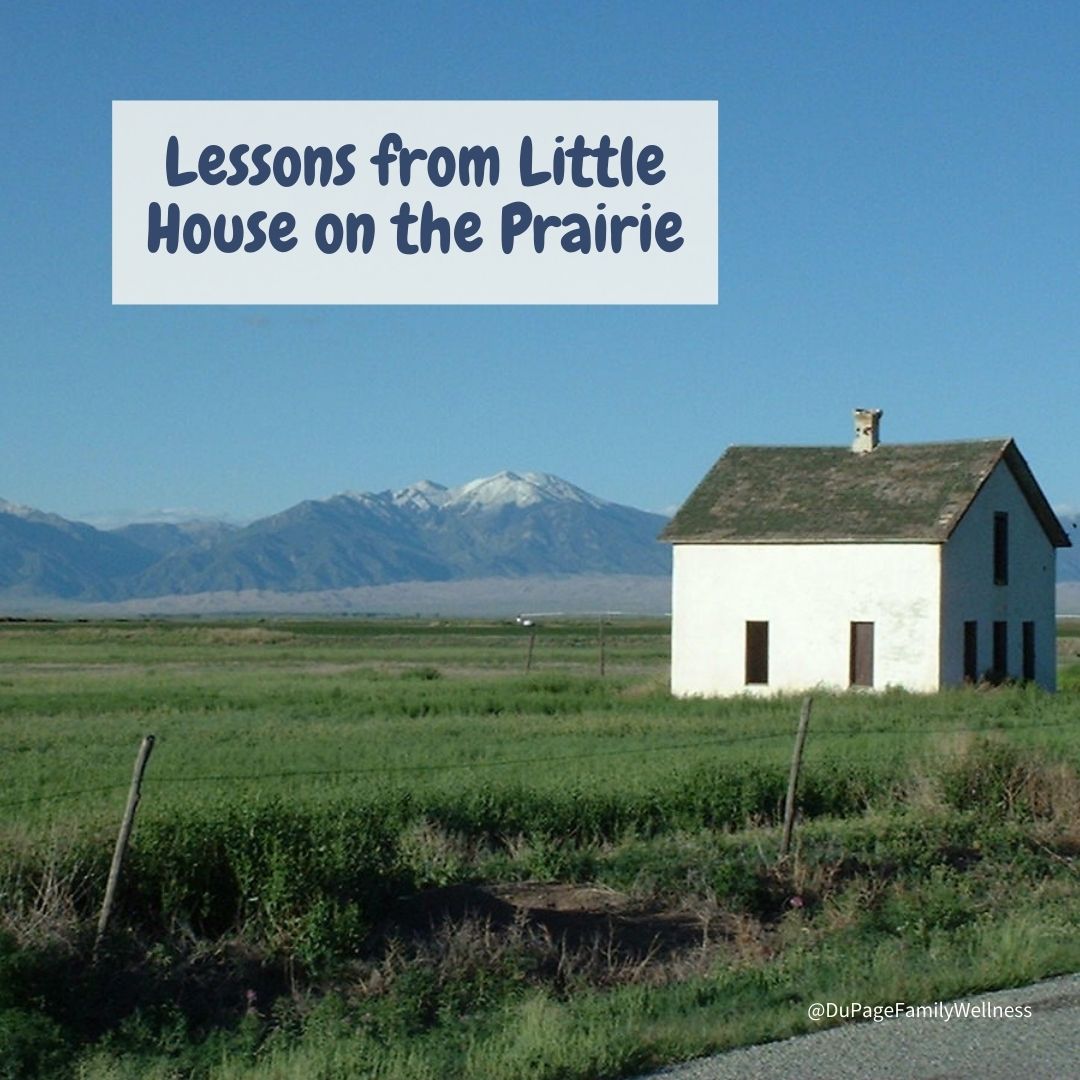 If you’ve been around me awhile, you know how much I refer to our ancestors to decide what a natural way of living looks like.
If you’ve been around me awhile, you know how much I refer to our ancestors to decide what a natural way of living looks like.
Long ago our ancestors lived off the land. They only ate what they could hunt, grow, or forage. Therefore, the foods they ate were whole foods either grown or caught in the wild.
What would it look like for you to align your diet with what theirs may have been? Is there a way we could follow some of those principles in modern day life to get more nutrition?
Let’s explore this issue and see if we can use their diets as a guide for ours!
Living off the Land
Long ago our ancestors lived off the land. The foods they ate were whole foods - grown or caught in the wild. Everything was natural with no sprays or pesticides.
At the same time, food could be scarce and difficult to get. They had to work the land - growing, harvesting, or hunting each serving of food.
These ancestors didn’t need a ton of self control not to eat junk food, it simply wasn’t available!
Modern Diets
In contrast the Standard American Diet (SAD) is highly processed and composed of foods made in a factory. Some of the ingredients are even genetically modified. This type of diet is far from natural.
Much of the produce in the grocery stores were sprayed with pesticides and picked before they were ripe. And many of the animal products we consume were made from animals grown in an unhealthy environment.
And today our food supply - especially the unhealthy choices - tends to be abundant and easy to get.
Read more ...
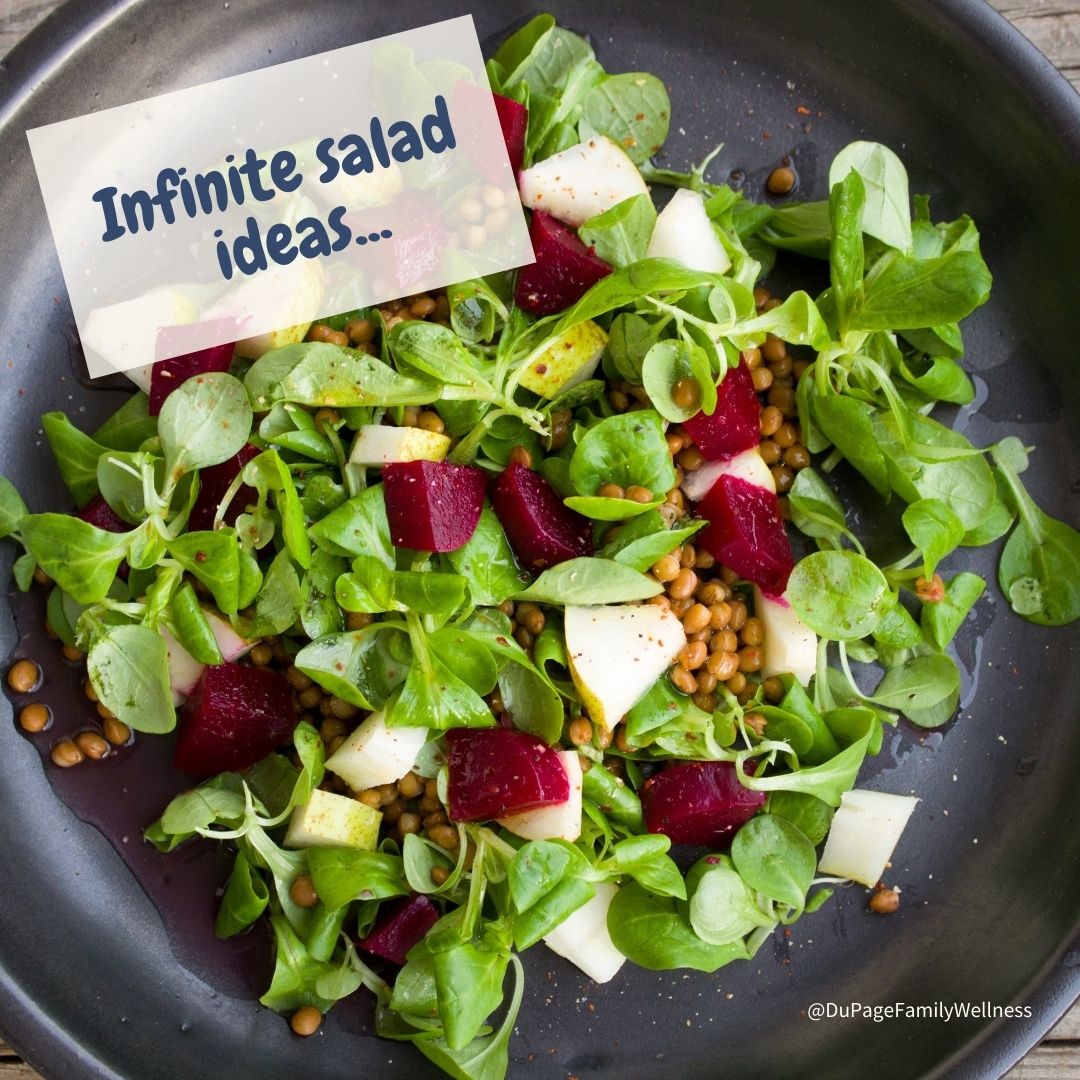 Eating a variety of different plants is good for your body in so many ways, but sometimes it's hard to get enough. Adding variety to your diet can help prevent boredom and can encourage you to eat more veggies!
Eating a variety of different plants is good for your body in so many ways, but sometimes it's hard to get enough. Adding variety to your diet can help prevent boredom and can encourage you to eat more veggies!
I know that my family has been stuck in a rut with our salads lately, so we started to spice it up a little bit. Instead of simply using mixed greens at the base of the salad, we have tried sliced red and green cabbage, grated beets, greens, swiss chard, kale, shredded carrots, microgreens, beet greens, cilantro, basil, mint, parsley, endive, and dandelion greens. (See the pictures below for some salads we've enjoyed recently.)
Let's explore the benefits of eating a variety of vegetables and see why the bright colored ones are so powerful.
The More the Merrier
Vegetables are loaded with great nutrients for your body. Let's look a just a few benefits of eating a lot of vegetables
- Vegetables give the body high levels of phytonutrients & antioxidants. Our bodies need phytonutrients and antioxidants to deal with free radicals, preventing them from causing damage in the body.
- Vegetables are loaded with vitamins, minerals, and enzymes.
- Vegetables provide the body with necessary fiber.
- Vegetables provide the body with prebiotics which feed the good bacteria in your gut. Many people are aware that probiotics are important for gut health, but a recent study found that prebiotics are even more important. Since 70% of the immune system is believed to reside in the gut it is extremely important to keep our gut flora balanced by feeding the good bacteria.
Read more ...
 Did you know that every cell in your body contains protein? And that protein contains amino acids that are used to repair all the tissues in your body?
Did you know that every cell in your body contains protein? And that protein contains amino acids that are used to repair all the tissues in your body? 

 Are you afraid to incorporate fats into your diet? Do you believe that eating fat will make you fat? If so, it's not your fault. You’ve likely been taught for years by the media that eating fat is going to make you fat, BUT this is simply not true!
Are you afraid to incorporate fats into your diet? Do you believe that eating fat will make you fat? If so, it's not your fault. You’ve likely been taught for years by the media that eating fat is going to make you fat, BUT this is simply not true! You know that eating veggies is important for your overall health! But sometimes it’s a hassle to run to the grocery store, clean the produce, and prepare a salad.
You know that eating veggies is important for your overall health! But sometimes it’s a hassle to run to the grocery store, clean the produce, and prepare a salad. Many people wonder if it's possible to create a Thanksgiving menu with all real, unprocessed, nourishing foods. To that I respond with a resounding yes! It is absolutely possible to make a great meal using healthy whole foods.
Many people wonder if it's possible to create a Thanksgiving menu with all real, unprocessed, nourishing foods. To that I respond with a resounding yes! It is absolutely possible to make a great meal using healthy whole foods.  If you’ve been around me awhile, you know how much I refer to our ancestors to decide what a natural way of living looks like.
If you’ve been around me awhile, you know how much I refer to our ancestors to decide what a natural way of living looks like.  Eating a variety of different plants is good for your body in so many ways, but sometimes it's hard to get enough. Adding variety to your diet can help prevent boredom and can encourage you to eat more veggies!
Eating a variety of different plants is good for your body in so many ways, but sometimes it's hard to get enough. Adding variety to your diet can help prevent boredom and can encourage you to eat more veggies!